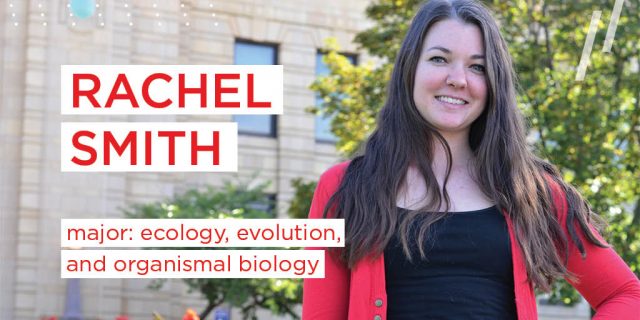
Rachel Smith is fascinated by the beetles. Water beetles, to be exact. As a biology major with an emphasis on ecology, evolution, and organismal biology, Rachel spends her days working alongside fellow KU entomologists on all things related to insect biodiversity and ecology. So when she learned about a study abroad program that would allow her to study local water beetles and discover new species in Suriname, the smallest country in South America, she seized on the opportunity.
Learn how Rachel’s hands-on research in Suriname allowed her to bring her sense of curiosity to scientific fieldwork and solidified her plans for the future.
Why did you choose your major?
I’ve always been interested in natural sciences, but my interest in Entomology actually started when I began making and selling entomological art pieces, which progressed to a scientific interest, leading me to my major of study.
Where did you study abroad?
I studied in Suriname, the smallest country in South America.
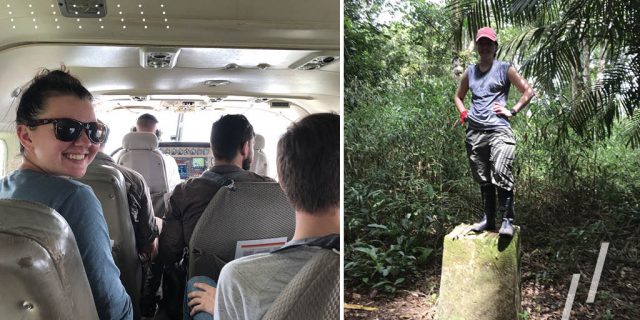
Why did you choose to study abroad?
I wanted to gain experience in my future field of study/career. My time in Suriname was a biodiversity assessment expedition, where we were looking to do a survey of the area we were in to document localities for known species of water beetle and discover new ones. For me personally, it was my first experience in biological fieldwork so I learned a lot about biodiversity, field sampling methods and the value of working with local collaborators! It definitely solidified the idea in my mind that it is something I want to pursue and I hope to continue with biological fieldwork centered on insect-related biodiversity and ecology in grad school!
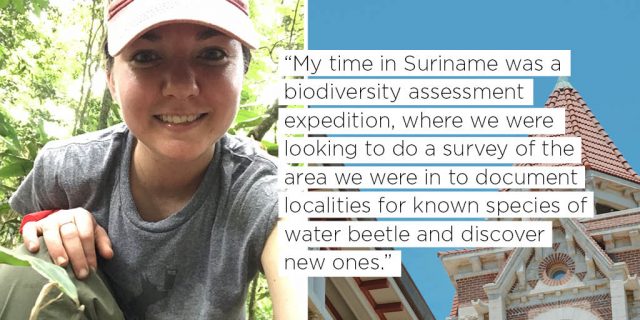
What was your favorite part of studying abroad?
Aside from the friends and connections I made with both my Surinamese and KU peers, gaining experience in what will hopefully be my career someday was absolutely invaluable!
What did you gain from the experience that will be valuable to you in the future?
I have made valuable connections in a country I hope to return to someday. I also gained valuable knowledge of how intense but rewarding field biology is, which will help me in my next expedition!
How did you find out about this study abroad opportunity?
My advisor recommended I go on this study abroad trip as a member of his lab and to gain experience.
What advice would you give students who are considering studying abroad?
I would advise students who are about to study abroad to learn a little of the spoken language(s) wherever you are going. Also, pack lots of socks!
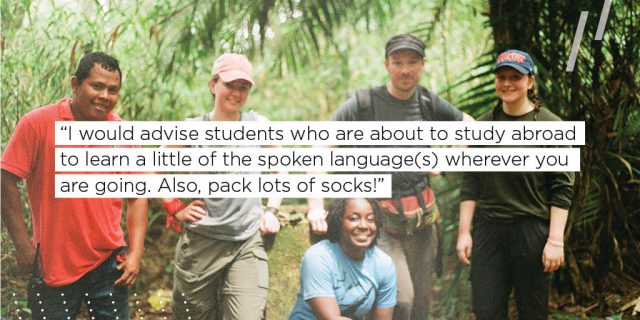
Give a shout-out to someone to a prof, advisor or someone else who has been influential during your time at KU:
I am very grateful to my current advisor, Dr. Andrew Short, who has taught me an incredible amount about biodiversity, entomology, biological fieldwork, and given me the opportunity to do research in his lab!
What do you like best about studying in the College of Liberal Arts & Sciences, the Heart of KU?
I like that there are opportunities for any major to do research on a project that they are interested in, and are encouraged to do so!
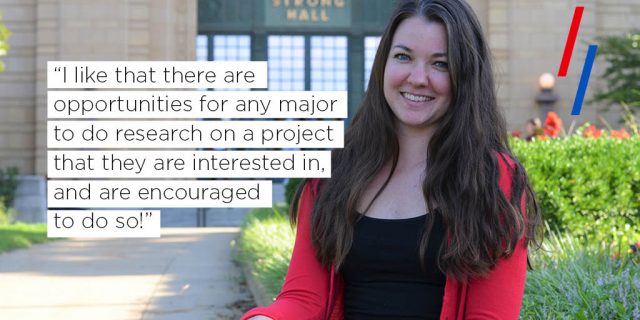
What do you plan to do after graduating?
I plan to attend graduate school either in the U.S., or abroad for entomology or ecology.
What motivates you?
I have always been very curious and love learning, so any opportunity to learn something new motivates me every day.
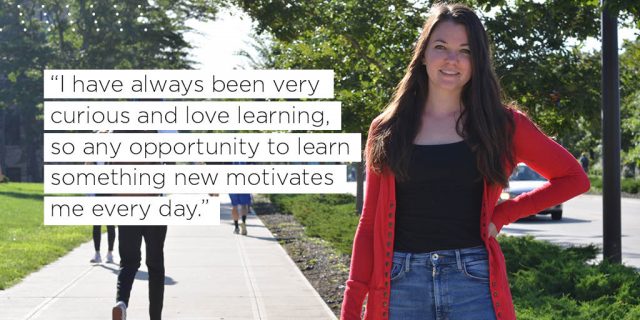
Be like Rachel. Seize on opportunities to learn in new ways, and in new places. For more information, explore the Undergraduate Biology Program and the office of Study Abroad & Global Engagement at the University of Kansas.